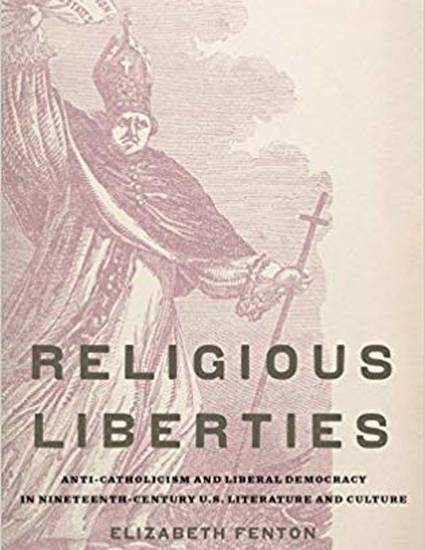
Article
Review of Religious Liberties: Anti-Catholicism And Liberal Democracy In Nineteenth-Century U.S. Literature And Culture by Elizabeth Fenton
American Catholic Studies
(2012)
Abstract
Scholars of religion in the United States have long argued that anti-Catholicism is in many ways endemic to U.S. culture. The first settlers, particularly the Puritans, brought their prejudices with them as they established their City Upon a Hill, where anti-Catholicism was deeply woven into the nation’s foundational fabric. Elizabeth Fenton’s Religious Liberties: Anti-Catholicism and Liberal Democracy in Nineteenth-Century U.S. Literature and Culture expands this argument to demonstrate that anti-Catholicism in fact formed the backing on the quilt of U.S. liberal democracy. The ideologies of various Protestant denominations comprise the multifaceted squares of democratic pluralism, freedom, and equality, but these are bound together by their underside: a contrasting perception of Catholicism as monolithic, enthralling, and hierarchical.
Disciplines
- Religion,
- Political Science and
- Law
Publication Date
Spring 2012
Citation Information
Nancy Lusignan Schultz. "Review of Religious Liberties: Anti-Catholicism And Liberal Democracy In Nineteenth-Century U.S. Literature And Culture by Elizabeth Fenton" American Catholic Studies Vol. 123 Iss. 1 (2012) p. 68 - 70 Available at: http://works.bepress.com/nancy-schultz/8/
